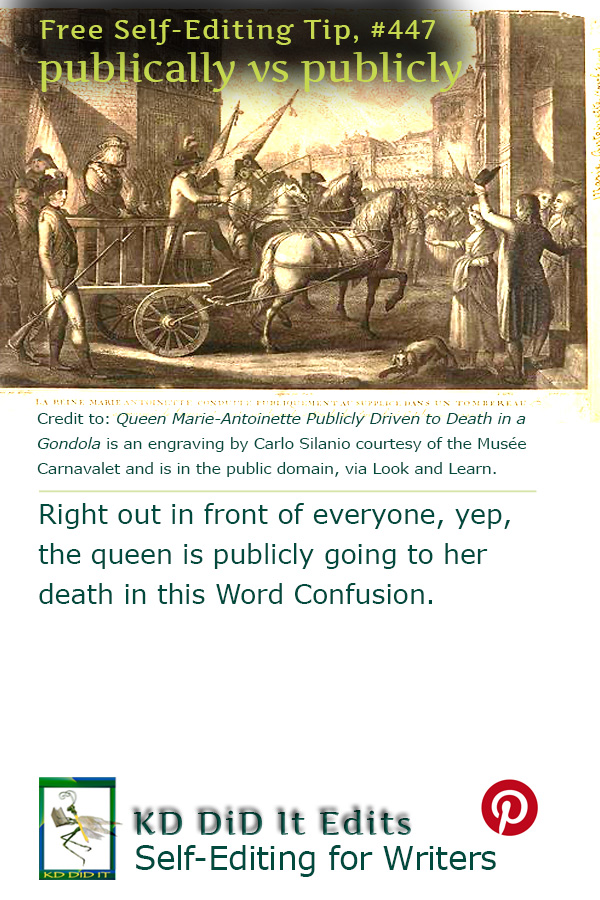The trick here is to go back to the root word: public. The general rule about turning a word into an adverb is to add an -ly.
Public + -ly = Publicly.
I do find it curious that the history of public‘s origin is that it originally meant adult people. Does that mean children are not part of the public??
Word Confusions…
…started as my way of dealing with a professional frustration with properly spelled words that were out of context in manuscripts I was editing as well as books I was reviewing. It evolved into a sharing of information with y’all. I’m hoping you’ll share with us words that have been a bête noir for you from either end.
If you found this post on “Publically versus Publicly” interesting, consider tweeting it to your friends. Subscribe to KD Did It, if you’d like to track this post for future updates.
| Publically | Publicly |
|---|---|
| Credit to: Apple Dictionary.com | |

“Iceland Picks the World’s First Openly Gay PM” article from Time magazine, 30 January 2009 by Jonas Moody is courtesy of Wikipedia retrieved on 13 November 2013. Jóhanna Sigurðardóttir, the former Prime Minister of Iceland, was the first gay head of government in modern times to come out publicly. |
|
| Part of Grammar: | |
| An adverb is generally formed by adding an -ly to the end of a word, since there is no such word as publical, there is no publically. | Adverb |
| So as to be seen by other people
In public
|
|
| Examples: | |
| Some weep publicly.
Publicly, officials criticized the resolution, but privately they thought it tolerable. Some publicly funded organizations need to be audited. It had once been a publicly owned company |
|
| Derivatives: | |
| Adjective: public, nonpublic, quasi-public, unpublic Adverb: quasi-publicly, unpublicly Noun: public |
|
| History of the Word: | |
| Public is late Middle English from the Old French, which is from the Latin publicus, a blend of poplicus (of the people) from populus meaning people and pubes meaning adult. | |
C’mon, get it out of your system, bitch, whine, moan…which words are your pet peeves? Also, please note that I try to be as accurate as I can, but mistakes happen or I miss something. Email me if you find errors, so I can fix them…and we’ll all benefit!
Pinterest Photo Credits:
An article by Marilyn Malara, “Amber Rose Publicly Forgives Exes Kanye West, Wiz Khalifa“, appears in UPI.

